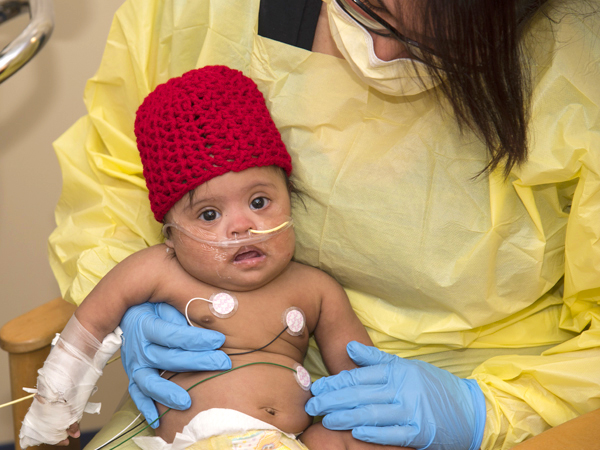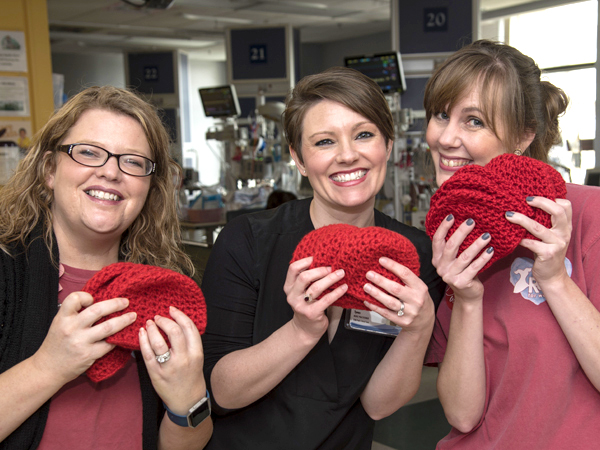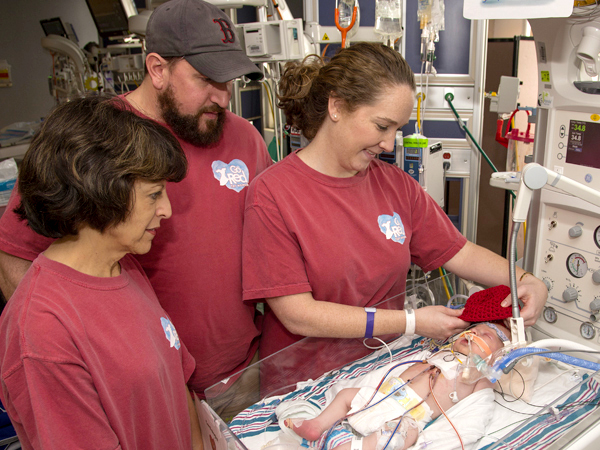‘Little Hats’ raise awareness of big cause: healthy hearts

The deep red beanie, seamlessly crocheted by hand, was slipped over little Alicia De La Cruz's curls.
It was one of dozens and dozens of little red caps donated to the youngest patients at the University of Mississippi Medical Center as part of the American Heart Association's Little Hats, Big Hearts campaign.
Around the country, knitters and crocheters are turning out red caps for babies born in February. The crimson caps are a reminder for families to live heart-healthy lives, said Christy Bridges, Go Red for Women director at the Metro Jackson American Heart Association.
“Little Hats, Big Hearts is something we did locally a couple of years ago, and we wanted to bring it back,” she said.

She couldn't have done it, she said, without the help of her mother, Katherine Brister of Crystal Springs. She crocheted each of the caps donated this year.
“I had just retired from work, and it was something to keep me busy,” she said. “I found a pattern and experimented, trying it with this size hook and that size yarn.”
More needleworkers are needed, Bridges said. Those interested in volunteering can see patterns, yarn recommendations and more at heart.org/littlehatsbighearts.
The program, paired with Go Red for Women, brings awareness of the importance of heart health as well as of congenital heart defects. According to the American Heart Association, some 40,000 children are born with a heart defect each year.

Susan Riley of Hattiesburg is among that number, having her congenital heart defect discovered and corrected when she was 24. Serving first, in 2008, as chair of Go Red for Women in Hattiesburg, and then, in 2009, as its spokeswoman, Riley was at the pediatric intensive care unit with granddaughter Neil Riley of Sumrall, who is recovering from heart surgery since her birth Jan. 11.
Susan, son Blake and daughter-in-law Keli all wore UMMC Go Red for Women T-shirts for Friday, National Wear Red Day.
Susan sees February's red wardrobes and heart emphasis as a key to improving heart health. “So much is being done in research, and Go Red for Women and other programs that bring awareness and support to the American Heart Association, which funds research that can save lives.”


